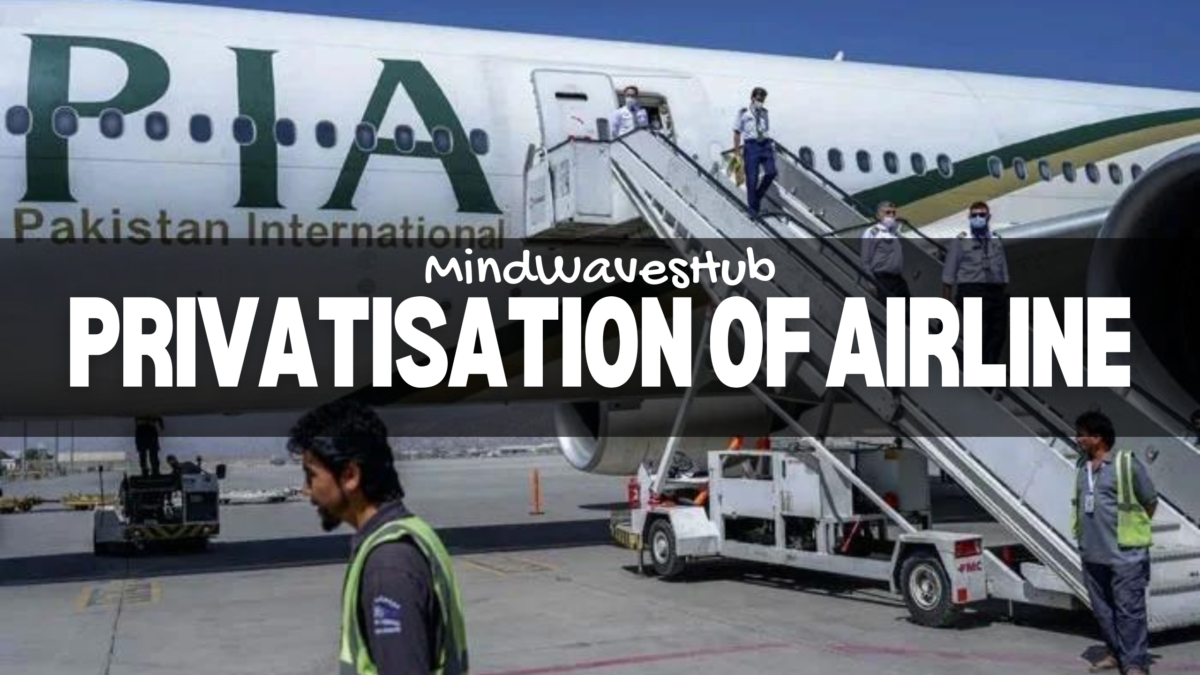The Privatisation of PIA: A Turning Point for Pakistan’s Aviation Sector?
As the October 1st date approaches for the demerger of Pakistan International Airlines (PIA), the stakes are high for Pakistan National Airlines and the entire country’s economy. The decision not to extend the privatization process beyond today shows the government’s determination to see the long-awaited change. But what does this mean for PIA employees and the airline industry?
Why this deadline is top priorty?
Recently, Usman Akhtar Bajwa, secretary general of the Privatization Commission, assured the Senate Privatization Committee that the government led by Prime Minister Shahbaz Sharif intends to complete the privatization of PIA soon. This sense of urgency is not unwarranted. PIA was once a symbol of national pride. experienced financial problems for years The company has debts of RS825 billion, with losses amounting to Rs75 billion in 2023 alone.
With such a huge financial burden, the question is not only about PIA’s savings, but whether privatization can be vital to renewing the airlines and ultimately Pakistan’s aviation sector.
The Benefits of Privatisation
Privatization of PIA is seen by many as an important step towards creating much-needed competition in the aviation industry. Six interim parties agreed to participate in the privatization, including major companies like Fly Jinnah Limited, Air Blue Limited, and Arif Habib Corporation Limited, among others. The price difference in relation to this change in PIA represents an important difference that can lead to better service, operational efficiency, and ultimately a better customer experience.
However, the road to privatization is not easy. Previous attempts to privatize state-owned enterprises like Pakistan Steel Mills and the National Power Parks Management Company Limited (NPPMCL) have been plagued by problems ranging from withdrawal of bidders to government uncertainty. If the airline has any chance of recovery, PIA should not suffer the same fate.
Concerns and Criticisms
Despite the potential benefits, the privatization of PIA is not without its critics. The chairman of the Parliament’s Standing Committee on Privatization, Senator Muhammad Tallal Badar, said that putting political interests ahead of national interests is dangerous. He warned that removing an institution like PIA would jeopardize the welfare of workers and the wider interests of the country. Their concerns are justified, especially in light of the enormous amount of public money spent on hiring financial advisers and exit specialists.
However, Badar was optimistic about PIA’s future and pointed to the company’s past. Confidence in PIA’s potential resonates with many who see privatization as a necessary step, if difficult, if properly managed.
Moving Forward
As the October 1 deadline approaches, the focus is on whether the privatization process should be completed and how to conduct it. The government needs to secure broad stakeholder support, resolve financial issues and develop a clear strategy for the future of PIA after privatization. Lessons must be learned from previous privatization attempts to avoid future blockages.
Ultimately, the privatization of PIA could be a turning point in Pakistan’s aviation industry. This gives the struggling airline a chance to breathe new life, increase competition and improve passenger standards. But success depends on carefully balancing economic interests and protecting the interests of PIA employees and society.
The coming months will determine whether PIA can recover or become another victim of Pakistan’s troubled privatization history. For now, all eyes are on October 1st.


Nice Post
👍🏻
Informative